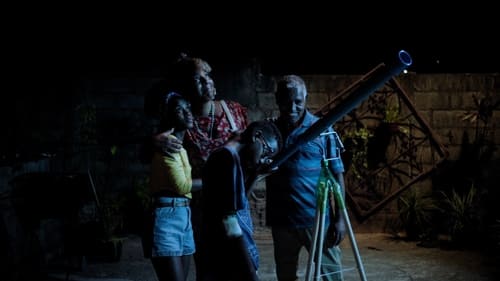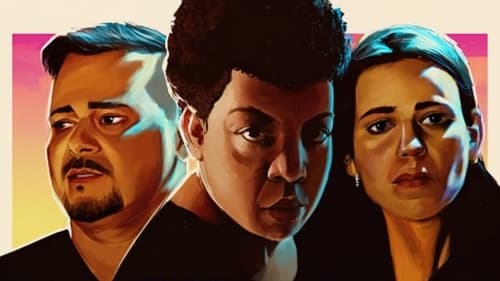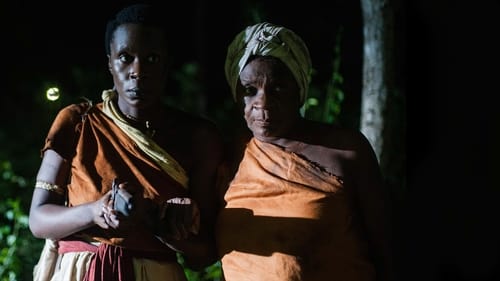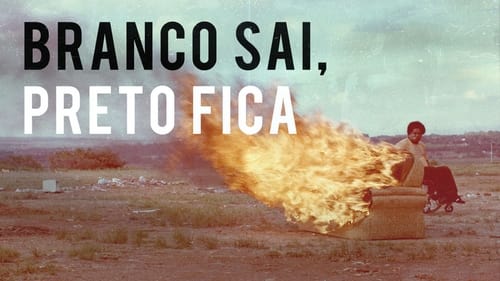
Director of Photography
The Martins family are optimistic dreamers, quietly leading their lives in the margins of a major Brazilian city following the disappointing inauguration of a far-right extremist president. A lower-middle-class Black family, they feel the strain of their new reality as the political dust settles. Tércia, the mother, reinterprets her world after an unexpected encounter leaves her wondering if she’s cursed. Her husband, Wellington, puts all of his hopes into the soccer career of their son, Deivinho, who reluctantly follows his father’s ambitions despite secretly aspiring to study astrophysics and colonize Mars. Meanwhile, their older daughter, Eunice, falls in love with a free-spirited young woman and ponders whether it’s time to leave home.

Director of Photography
Mesmerized by the image of an active volcano on the other side of the world, a woman sets out to meet her fury. On the way, without being able to return, she finds herself in an extraordinary pregnancy, starting the account of the journey that gives shape to this play-film, a journey between theater and cinema inspired by the narratives of fantastic realism.

Director of Photography
A trans girl and her mother move to a new town in order to start fresh, but quickly face dilemmas when the local high school needs a second parental signature for enrollment.

Additional Photography
A film about popular movements in defense of housing. Introducing: the State against the Homeless, in the capital of Brazil.

Executive Producer
A film about popular movements in defense of housing. Introducing: the State against the Homeless, in the capital of Brazil.

Director of Photography
The inhabitants of the Brazilian city of Contagem yearn for a better life. At the core of it all is Selma, a woman dreaming about the heart of the world: it could be anywhere, as long as it's a place where to feel happier.

Producer
Since 2015, the Landless Workers Movement has been occupying an indebted sugarcane factory's land to press for its redistribution through land reform. Grandma, P.C. and their encamped fellows struggle to conquer a small share of land where they can settle down and live a self-sustainable life, growing agro-ecological crops in a newly knit peasant community they draw in their dreams.

Director of Photography
After being the victim of a violent eviction in the Parque Oeste neighborhood, in Goiânia, a woman rebuilds her life based on the struggle for housing.

Cinematography
After being the victim of a violent eviction in the Parque Oeste neighborhood, in Goiânia, a woman rebuilds her life based on the struggle for housing.

Director of Photography
During the slavery period in Brazil, a sugar cane farm was the stage for the darkest kinds of horrors. Years later, the place's cruel past is still stained in its walls, even if unnoticed, until a series of strange events starts happening and death returns to the farm. The film is divided in five short horror stories.

Director of Photography
André, a teenager, lives in an industrial town in Brazil near an old aluminum factory. One day, a factory worker, Cristiano, suffers an accident. Asked to go to Cristiano’s house to pick up clothes and documents, André stumbles on a notebook, and it’s here that Araby begins — or, rather, transforms. As André reads from the journal entries, we are plunged into Cristiano’s life, into stories of his wanderings, adventures, and loves.

Producer's Assistant
mariana, a young black woman is recovering from a heavy depression. she just wants to be happy, but hasn’t found her way yet.

Cinematography
Fragments of an endless night, Robert and Teresa meet and get to know each other, and get separate by the force of oppression and the threat of death and disappearance that continually creeps in.

Director of Photography

Cinematography
This film touches on political thought, worldview, as well as the direct actions of a group of militants from autonomous movements in the Federal District of Brazil, from 2005 to 2013.

Cinematography
Shots fired inside a club frequented by black Brazilians in the outskirts of Brasilia leave two men wounded. A third man arrives from the future in order to investigate the incident and prove that the fault lies in the repressive society.

Director of Photography
During the passage of the World Cup of Brazil through Brasilia, we accompanied Maninho, a former professional football player who today works as a street walker, selling bottles of water and flags of the national teams.

Cinematography
The film follows the Miss contest season in Brasilia and satellite cities of the Federal District in the year 2010, revealing the contradictions behind the catwalks of fashion.

Cinematography
The city of Brasilia hoped to become, from its very architecture, the expression of modern urban conception and an egalitarian society. However, neither the workers hired to pursue this project, nor the constant migratory flow that took place from the beginning, fitted in the government’s plan. In 1971, it began what was known as the “Campaign to Eradicate Invaders”. Together with other locals, the director reflects on the history, the transformations and the future of this place where the hypocritical official jingle “A cidade é uma só!” is no longer heard.

Director of Photography
A documentary about football players in the low divisions of Brazilian football.

Cinematography
A documentary about rap artists from Ceilândia, a satellite-city of Brazil capital, Brasilia. The film portrait the struggle of the lives of the rapers and makes a parallel with the violent building of the city designed to settle the outcast from Brasilia after its completion.


















